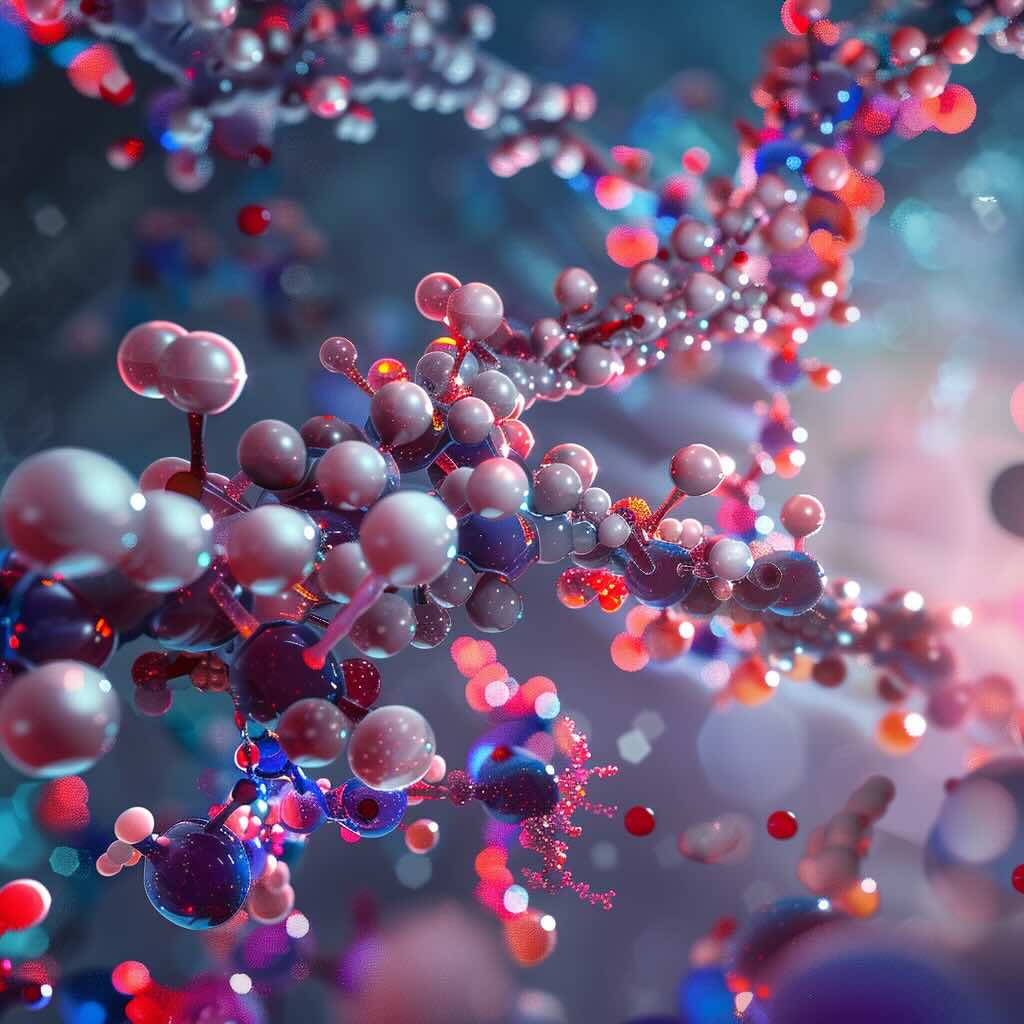Natural Alternatives to Synthetic Hormone Therapy: Exploring Peptide Bioregulators

Welcome Heath Seekers! Today we're taking a deep dive into a topic that’s buzzing in the wellness world: natural alternatives to synthetic hormone therapy. While hormone therapy can be effective, studies show it comes with elevated risks of blood clots, cancer, and stroke.
While this is worth the risk for some women, there are now a more biological way to optimize your body. Not by jamming synthetic hormones into your system... But by reactivating the body's natural ability to restore itself.
This is where peptide bioregulators come in. And if you’ve never heard of them, prepare for a perspective shift. Let’s unpack why bioregulators are stealing the spotlight and how they can be a game-changer for your health.
What Are Peptide Bioregulators Anyway?
Peptide bioregulators are ultra-short chains of amino acids—2 to 4, to be exact—that act like molecular "switches" inside your body. Unlike synthetic hormones, they don't override your system. Instead, they re-engage your body’s original programming—like flipping on genes that have gone dormant with age. This helps your body unlock it's natural resources so it can heal itself.
A key point is you already have peptide bioregulators in your body. They are naturally occurring and found in various forms throughout the body including in the pineal gland and the pancreas. As we age our peptide bioregulator levels decrease, which can create hormonal changes and alter melatonin levels.

The Science Behind Peptide Bio-regulators
Alright, let’s nerd out for a second. Peptides have over 50 years of research, over 200 experiments, and millions of patients.
The development of peptide bio-regulators originally happened during the cold war, these compounds were created to regenerate and restore critical organs under extreme conditions. All of this without introducing foreign hormones or using drugs like in World War 2.
We can thank Dr. Khavinson for his knowledge around this aging process. Dr. Khavinson also had an understanding that other factors would affect protein synthesis in life. Many factors such as stress management, elevated levels of food chem, and environmental toxins affected how fast we used up our biological reserve of peptide bio-regulators.
So he extracted groups of short chain amino acids to improve protein synthesis. The result of these methods have far ranging implications on our present understanding on what happens when humans age. We've found that our bodies vary significantly in their ability to produce protein synthesis. This knowledge combined with how to improve protein synthesis has lead to better health outcomes for millions.

How Peptides Support A Better Health Journey
Peptide bio-regulators are designed for specific organs or systems, telling them to repair, regenerate, or optimize function. These peptides are derived from natural sources like animal tissues and designed to mimic the peptides your body already makes.
⚡ Bioregulators don’t replace your hormones. They RESTORE the systems that produce them.
The key process in peptide bioregulators is it does not override your body's natural process like hormone therapy or other drugs. Peptide bio-regulators stimulate your body for tissue regeneration. It’s like giving your endocrine system a gentle pep talk instead of trying to do everything for it. This makes them a safer, more sustainable option for long-term hormone balance.
Why Bioregulators > Synthetic Hormones
|
Feature |
Synthetic Hormones |
Peptide Bioregulators |
|---|---|---|
|
Alters hormone levels directly |
✅ |
❌ |
|
Mimics body’s natural signaling |
❌ |
✅ |
|
Supports gene expression |
❌ |
✅ |
|
Risk of side effects |
Medium |
No known side effects |
|
Long-term restoration |
❌ |
✅ |
|
Accessibility |
Prescription-based |
OTC (in many countries) |
So we get increased protein synthesis without the unwanted side effects to the immune system. This can help support the body's natural areas like: The central nervous system, gut health, and circadian rhythm. This also can help mitigate the negative effects of certain genes and their expression as we age.
Bioregulator Production
Peptide bio-regulators can be produced through chemical synthesis and natural extraction from animals. Most of the research is centered around natural extraction of peptides taken in pill form to be absorbed in the small intestine.
These are distinctly different fro other peptides that are administered by intramuscular injection by a doctor or healthcare professional. Both types have the same molecular mechanism and help the body produce proteins for protein synthesis. Peptide bioregulators have shown a positive impact on telomere length and other markers of health.

Benefits of Peptide Bio-regulators
Peptide bio-regulators offer a range of benefits. They help promote optimal health and well-being, without the need of intervention from conventional medicine. What makes peptide bioregulators so appealing is they mimic the normal biological process of humans. These amino acids that aid in gene expression are restorative in nature for the human body.
Conclusion - Computational Analysis Of Peptides
As more clinical trials happen, our understanding of peptides can help to open up more treatment options. Peptides have shown a wide range of benefits, including reduced chronic stress, restoring digestive enzymes, and improved gut health.
The science we already know combined with we knowledge we will gain from further experiments makes this an exciting time for peptide therapy.


